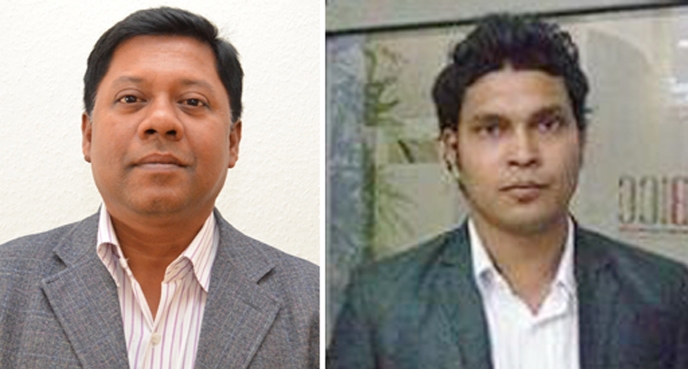
Dr Matiur Rahman and Shishir Reza :
How many women are working as tea workers in Bangladesh? Do any tea workers need legal or mental counselling? What are the impacts of Covid-19 on tea workers? What types of empowerment do tea-workers women enjoy in society? Why is real empowerment of tea workers necessary?
The answer to all these questions is analysed very critically and justifiably by eminent Economist Prof Dr Abul Barkat in his book (published in 2020) titled “Boro Porday Somaj-Orthoniti-Rastro: Vairuser Mohabiporjoye Thekey Shovon Bangladehser Sondhane (On the Larger Canvas of Society-Economy-State: In Search of a Transition from the Virus-Driven Great Disaster to a Decent Bangladesh).
Global research shows that tea, following water, is the second most popular beverage in the world. The Chinese farmers had a monopoly on cultivating tea. Researchers have figured out that there are 168 tea gardens in Bangladesh; where one unique feature of the tea industry is the entire land mass granted for the production of tea is government land. In general, tea workers are known as coolie, and these coolies belong to many ethnic identities in vacant jungles, plant trees and build luxurious bungalows for tea planters (tea garden owners or Managers).
People’s economist Abul Barkat also explains tea workers’ contribution to Bangladesh’s economy, estimate time spent by both women and men on all types of daily activities, the economic value of woman’s uncounted activities, and generate recommendations to clarify the woman’s status in the family and society. He also suggested that a “Decent Social System” is possible to build up by empowering tea workers properly.
Professor Abul Barkat clarifies “Decent Social System” is based on a democratic state system, which puts loyalty to nature at the front position. All socio-economic and political foundations should be built based on the influence of nature. There are three foundational components of this concept – (i) the Social foundational component owns knowledge-rich, free-thinking and creativity-promoting; solidarity rich; secular; free from all forms of superstitions; rational humans; human well-fairest science; (ii) the Economic foundational component includes people’s ownership on natural resources; social ownership on production; filthy rich less; share and market less system; and (iii) Political foundational component includes democracy, lord less state system, social justice, community administration and people’s responsibility to protect the motherland.
The fundamental objectives of the theory of decent society are accelerating the process of human enlightenment; creativity-promoting knowledge system; instilling a high sense of solidarity; a process of making human rationality up; making people free from all forms of inequality; free from rent-seeker; making a state for 100 per cent people’s ownership and masterless civic governance.
Renowned researcher Abul Barkat presents eleven principles to renovate decent Bangladesh from covid-19 impacts. 1. We want development-welfare-progression, but the development would be nature-environment oriented; 2. We need economic growth. We don’t need environmentally harmful, socially unjustified, human resources destructive growth; 3. Growth should be inequality reduced; 4. Growth must be employment-creation oriented; 5. Per capita income or growth of domestic product is not development. It must ensure the healthy life of women-children-old-marginal-poor-deprived-isolated people; 6. We want to transform the power of youth into real resources; 7. We want positive social impact; 8. People own natural resources (land, water body, forest, space resources, coal, gas and mineral) on behalf of nature; 9. We want to uphold human security and equal opportunity for state-society-economy’ development; 10. Promote inequality-reduced home-grown development philosophy; 11. We want to extract the taste of global economic opportunities.
To make Bangladesh a decent country, the politically, socially and economically empowerment of tea workers is indispensable. Researchers mention that education is essential to transforming a community or society for betterment. Bangladesh Tea Board explains there are 188 primary schools with 366 teachers and 25,966 students in the tea gardens. But the qualities of education remain at the level of concern.
The people of ethnic groups has own culture, language, history, education and native knowledge. The state should ensure their right regarding economic efficiency, psychological stability, social security and justice. Abul Barkat suggested eliminating all forms of discrimination and inequality against tea workers in Bangladesh; removing all forms of violence against women; increasing the budget for tea workers; working plan for indigenous women development; promoting gender equality basis research; implementing policies for gender-sensitive technology; promoting principles where women affected by covid-19.
Will tea workers continue to live as people without choice and entitlement to a land they have tilled for four generations? The tea plantation workers are not just poor but particularly deprived of marginal communities. The impacts of Covid-19 have created a very tough situation. However, it is time to eliminate the curse of social exclusion, low payment, deprivation and disconnection.
Moreover, sustainable development goals (SDGs) include reducing inequality and ensuring decent jobs for all by 2030. In this context, we need proper strategies, financial support and public participation to achieve this goal. Abul Barkat, a humane economist, recommends ensuring opportunities for tea workers, including the excluded women groups, expanding choices to lead life, respecting constitutional and justifiable rights, eradicating poverty, and breaking deprivation to build a decent society.
(The writers are, respectively, researcher and development worker & environmental analysts and associate member, Bangladesh Economic Association).

